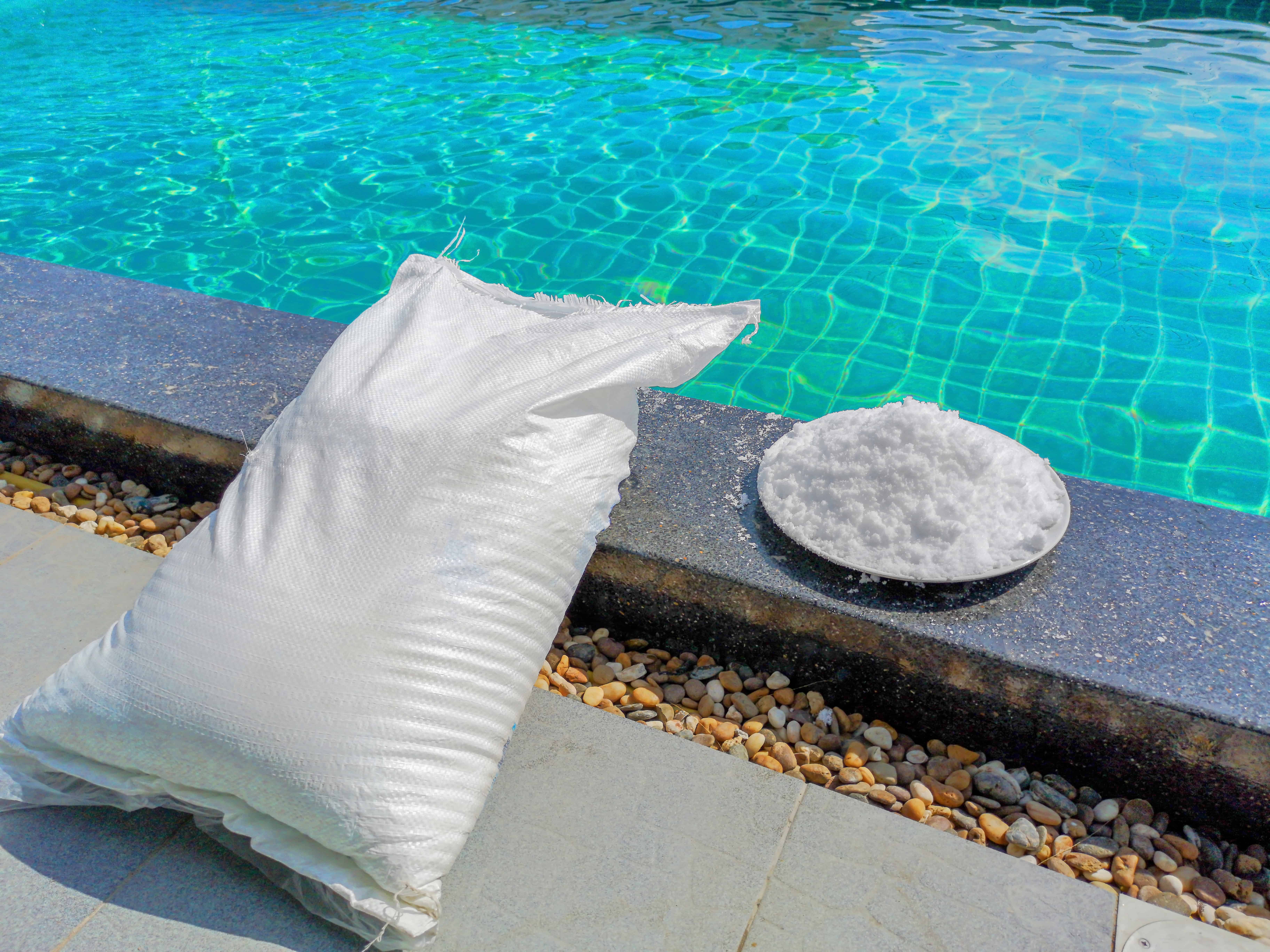Perhaps you bought a resale home or otherwise have a house with pool and are wondering what kind of system you own. Why it would be odd that you buy a resale home with an existing pool and not know from the previous owner what sort of pool it is, it isn’t completely out of the question.
Some people have little knowledge about how their pool works especially if they had a company doing maintenance, cleaning it, and doing pool openings and closings. They just swim in it and leave the pool work to others.
You can quickly spot a salt water pool by looking for a few key parts.
A salt water pool has a tubular plastic salt cell installed into the existing plumbing work near the pump and also has a control box of some sort to manage the salt chlorination system itself. A small flow pump is also installed internally in the plumbing. This is the only specific equipment required.
How to spot a salt water pool quickly

The easiest way to spot a salt water pool system is the:
- Salt cell – The salt cell is installed into existing pool plumbing after the pump, filter and heater. So the water passes through these systems before passing through the salt cell before the water is sent back into the pool, freshly chlorinated.
- Salt chlorinator control box – Depending on the model and brand, the box can be quite large and typically gets fastened onto a wall or other structure and hard wired near the rest of the pool equipment. It is the computer behind the system and controls all the functions, timers, etc centrally.
A salt chlorinator system also has a flow valve installed to monitor the level of water passing through the system. If the water flows is limited or stops, it’ll alert the chlorinator and shut the cell down so it doesn’t burn out by running dry. It’s very small and is typically attached internally with a small sensor showing externally on the piping.
If you have this equipment as part of your pool system you have a salt water pool as this is the required equipment. Otherwise you have another type of pool which is commonly a regularly chlorinated pool or an ozone pool.
A salt water pool is a chlorinated pool
The title of this article Is My Pool Salt Water Or Chlorine (How To Tell) is a bit of a misnomer but I wrote it on purpose. Some people believe that salt water pools don’t have chlorine but that is not the case. The salt chlorination system converts dissolved salt into chlorine using a process called electrolysis so salt water pools do in fact have chlorine.
The difference between the two pools is how the chlorine is added.
In a salt water pool, water flows through the salt cell which is also known as an electrolytic converter. A small and safe electrical charge is passed over the rows of metallic plates that are located inside the cell. Chlorine is produced as a result of this electrical charge and the newly chlorinated water is sent back into the pool to kill bacteria.
In a regular chlorine pool, chemical chlorine is manually added to the water every week either in liquid, crystal or puck form.
So both a salt water pool and regular chlorine pool if you will, are chlorinated pools. The difference is how the chlorine is supplied. A salt water pool creates its own chlorine rather than simply using a chemical chlorine product.
Summary
The main components of a salt water pool that other pools don’t have are the salt cell, salt chlorinator control box and a small water flow valve. Without these parts, a pool cannot function as a salt water one.
You can convert an existing pool into a salt water system by adding these three components. Everything else remains the same including your pool heater if you have one as they are unaffected by a salt system.
If you’d like to investigate converting an existing swimming pool to a salt water system, check out my articles called:
Salt Water Pool Conversion Pros And Cons
Will Adding A Salt Water Chlorinator Void A Pool Warranty? (Answered)

